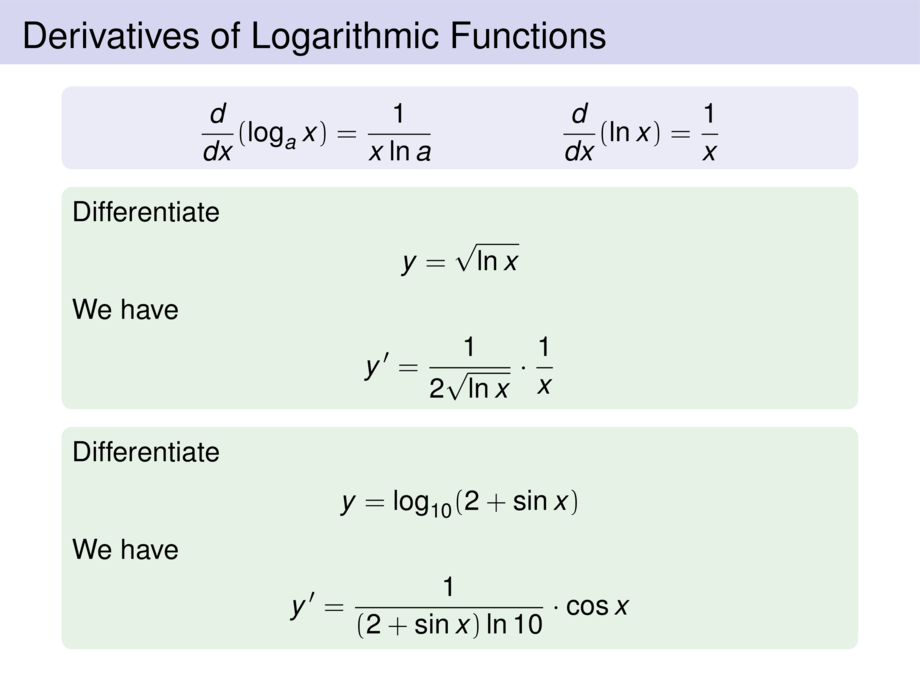
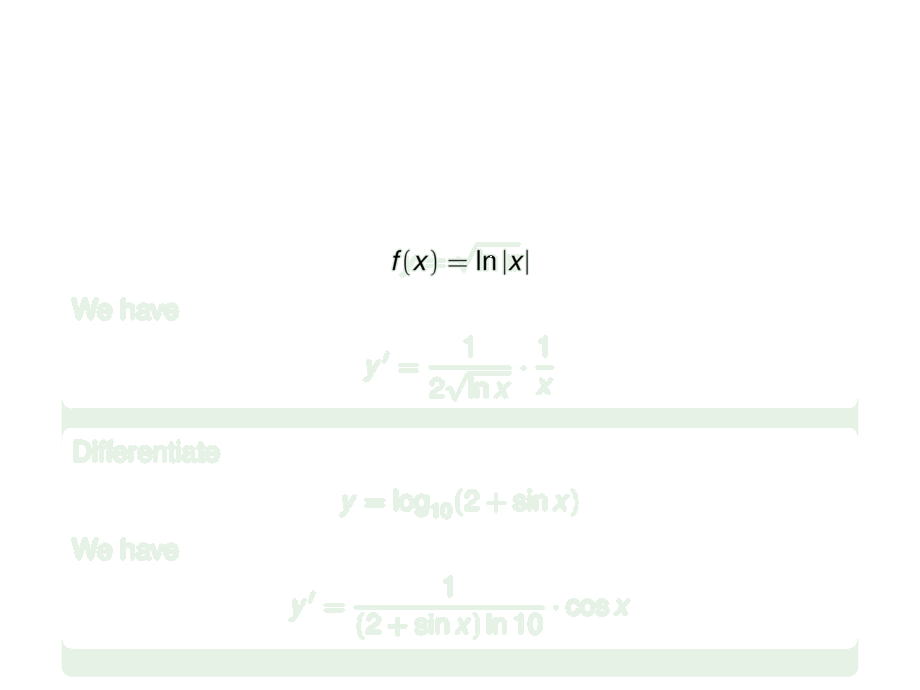
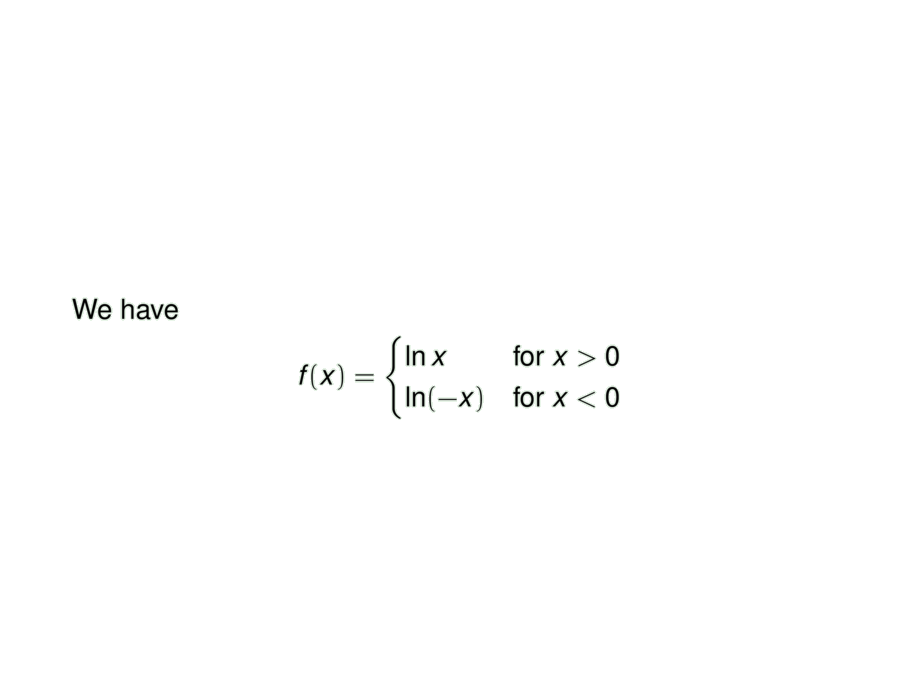
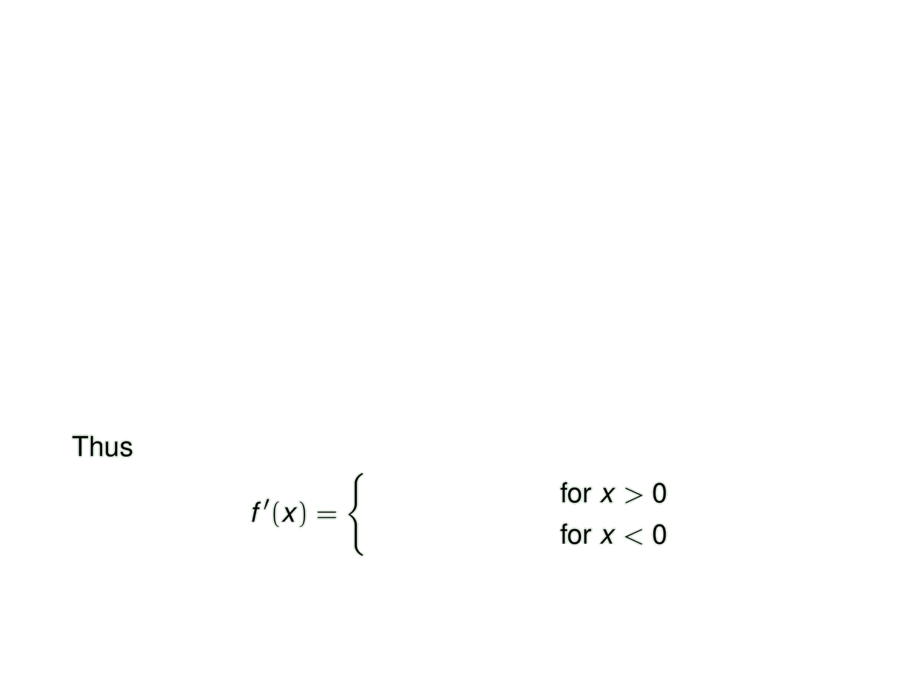
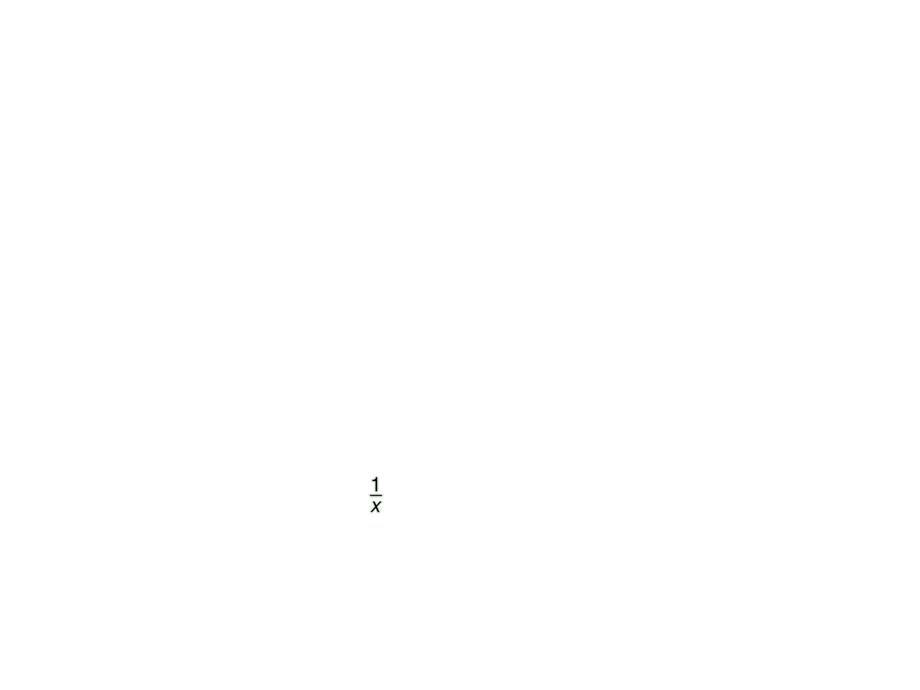
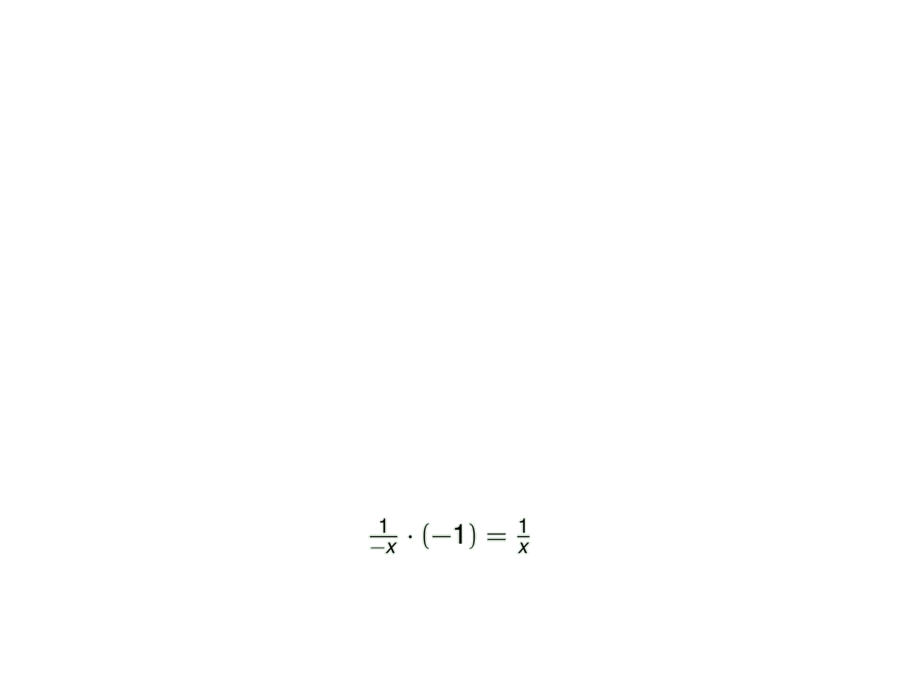






























































































25/78
\begin{frame}
\frametitle{Derivatives of Logarithmic Functions}
\begin{block}{}
\begin{malign}
\frac{d}{dx} (\log_a x) = \frac{1}{x\ln a}
&&
\frac{d}{dx} (\ln x) = \frac{1}{x}
\end{malign}
\end{block}
\begin{exampleblock}{}
Differentiate
\begin{talign}
f(x) = \ln |x|
\end{talign}
\pause
We have
\begin{talign}
f(x) = \begin{cases}
\ln x &\text{for $x > 0$}\\
\ln (-x) &\text{for $x < 0$}
\end{cases}
\end{talign}
\pause
Thus
\begin{talign}
f'(x) = \begin{cases}
\mpause[1]{\frac{1}{x}} &\text{for $x > 0$}\\
\mpause[2]{\frac{1}{-x}\cdot (-1) = \frac{1}{x}} &\text{for $x < 0$}
\end{cases}
\end{talign}
\pause\pause\pause
Hence
\begin{talign}
\frac{d}{dx} \ln|x| = \frac{1}{x} \quad \text{ for all $x\ne 0$}
\end{talign}
\end{exampleblock}
\vspace{10cm}
\end{frame}

